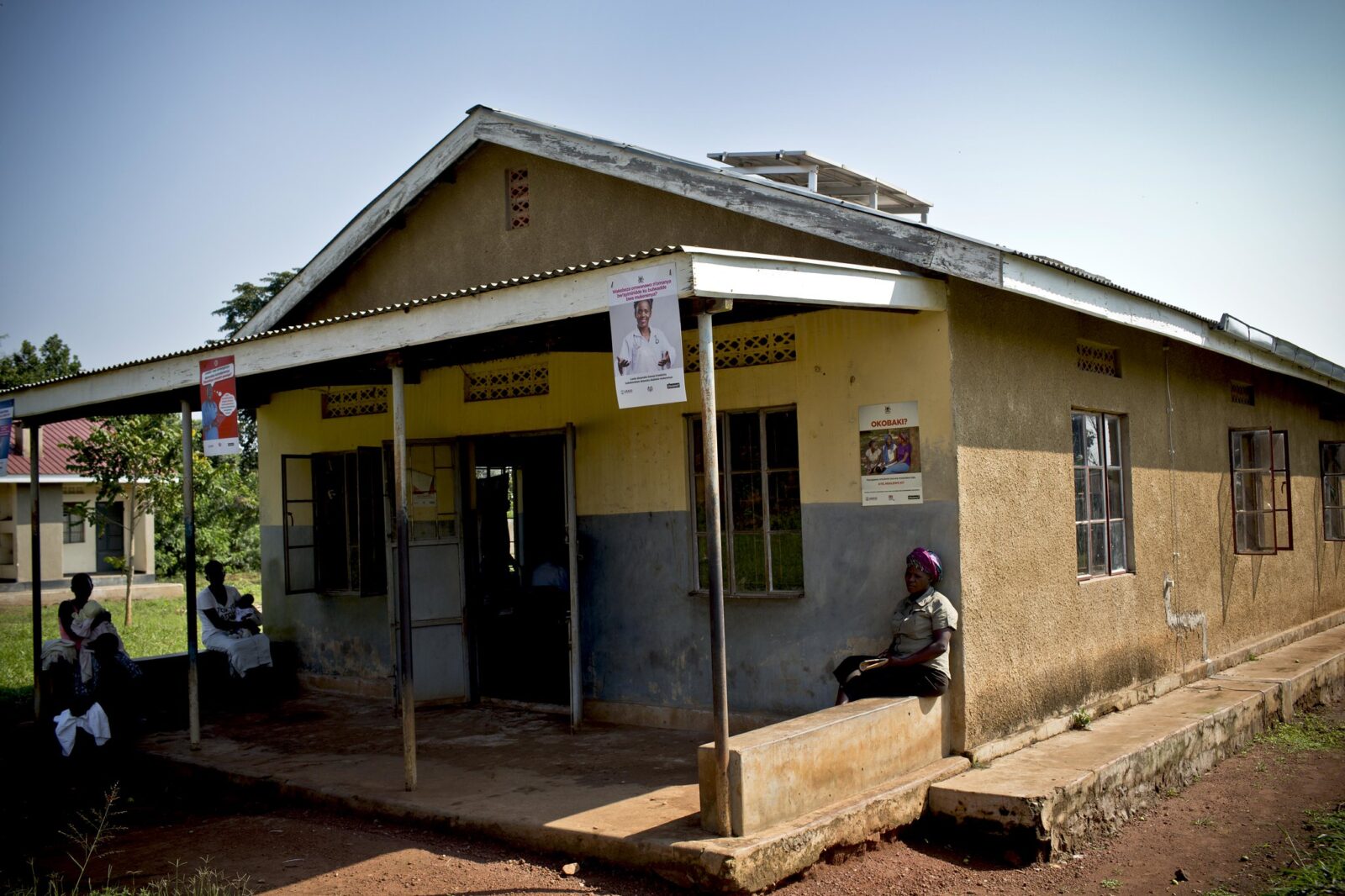Supportive Supervision and Behavior Change Communication in Uganda

Mothers and their children wait to receive vaccines and health services in Busowobi Inganga, Uganda | Kate Holt, Maternal and Child Survival Program
Study Context
Malaria is endemic to Uganda and accounts for between thirty and fifty percent of outpatient visits and twenty percent of deaths among hospitalized children and pregnant women. Private health facilities play an important role in malaria control and prevention in Uganda, with the majority of the population seeking care here. However, the quality of malaria care and data management in private facilities is highly variable and often suboptimal. Multiple studies document a lack of regulation of these facilities, insufficient integration with national malaria case management programs, and an inadequate training of health care providers.
Study Design
Against this backdrop, the research team piloted an approach that combined supportive supervision of healthcare workers (guiding, training, and encouraging them to focus on problem-solving to assure quality of malaria case management) with behavior change communication to patients (advocacy activities to provide information about malaria, create demand for change, and foster social mobilization).
The study design assigned villages in Jinja, Hoima and Wakiso districts to receive the supportive supervision intervention, the behavior change communication intervention, or both at a total of 24 private health facilities. Data were collected through a structured questionnaire from the in-charges of each health facility, exit interviews from 144 health facility patients, 24 semi-structured interviews from health facility staff along with three focus group discussions.
The primary outcome of interest was the proportion of suspected malaria cases tested for malaria and correctly treated with artemisinin-based combination therapies (ACTs).
Results and Policy Lessons
Supportive supervision and behavioral change communication are feasible and practical tools that can address the challenges of implementing the “Test, Treat and Track” malaria policy at private health facilities in resource-limited settings. The implementation of supportive supervision and behavioral change communication led to a decrease in the treatment of negative malaria test results with antimalarial drugs, and an increase in the percentage of malaria testing. The study also highlighted the importance of integrating private health facility providers into national case management programs and the need for an informed and engaged population in malaria control efforts.
The study will inform the design of a future effectiveness study and the Ministry of Health in Uganda’s malaria approach.




